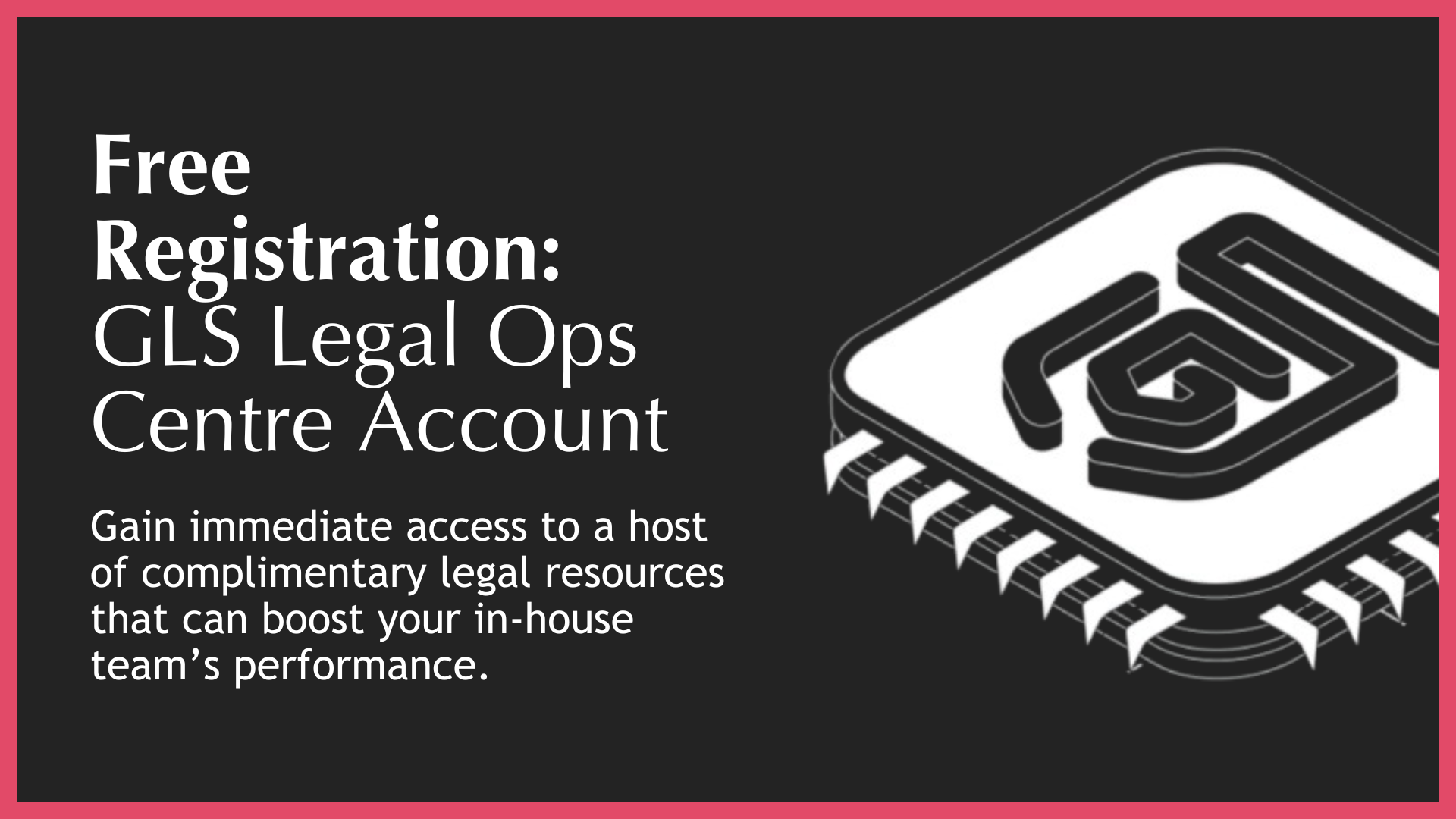The GLS Legal Operations Centre
The ultimate in-house legal department resource stack
Back
Deal Memory
What Is It
“Deal Memory” refers to the who / what / when / why certain decisions were made in relation to a commercial deal.
This is valuable data as it:
forms an important part of the compliance record of the deal; and
can contribute to ongoing efforts to improve a business’s contract capabilities, which necessarily are dynamic in nature and require frequent updating in response to new laws, market practices and availability of risk mitigating techniques.
Failing to systematically capture/document and utilise this valuable resource undermines a legal team’s abilities to enhance their performance and makes them vulnerable to accusations of negligence, etc., if disputes ever arise in relation to that deal.
So high-performing legal teams will:
consistently record this meta-data in relation to each deal that they undertake, and
interrogate and use that data to inform the strategic initiatives that they undertake to improve their future operations.
Scope
The Deal Memory enabler should include structured documentation of:
◼️ Key Negotiation Decisions: Summarizing the rationale behind material contract positions.
◼️ Risk Approvals & Deviations: Recording instances where standard risk thresholds were overridden.
◼️ Stakeholder Involvement: Capturing which individuals or departments made specific decisions.
◼️ Concessions & Trade-Offs: Documenting agreed-upon compromises during negotiations.
◼️ Legal & Compliance Considerations: Noting key legal positions taken during negotiations.
◼️ Commercial Rationales: Providing the business context for key contract terms.
◼️ Final Agreement Summary: Outlining the most critical negotiated outcomes.
◼️ Post-Execution Obligations: Tracking any follow-up actions required under the contract.
Resource Status
In GLS legal ops, the Deal Memory enabler is a "Repater" resource within legal operations.
◼️ A Repeater Resource: Supports multiple legal and business functions by providing clarity on past decisions, risk management, and compliance oversight.
◼️ Capturing Deal Memory reduces contract-related disputes, enhances institutional knowledge retention, and strengthens legal team accountability.
Best Practice Features
The best practice features of Deal Memory include:
◼️ Standardized Documentation Format: Ensuring uniformity in recording key contract decisions.
◼️ Integration with CLM Systems: Embedding Deal Memory within contract lifecycle management workflows.
◼️ Risk & Compliance Tracking: Linking Deal Memory to company policies and legal guidelines.
◼️ Version Control & Access Logs: Ensuring secure and auditable record-keeping.
◼️ Stakeholder Attribution: Clearly identifying decision-makers on contract deviations.
◼️ Automated Summary Generation: Using AI tools to extract key insights from negotiation records.
◼️ Legal Team Review Mechanisms: Establishing internal validation steps before contract execution.
◼️ Accessibility & Searchability: Ensuring past deal data can be easily retrieved.
◼️ Training & Best Practice Sharing: Using Deal Memory insights to improve future negotiations.
◼️ Cross-Departmental Collaboration: Aligning Deal Memory capture with finance, risk, and compliance teams.
Business Value
The Deal Memory enabler delivers significant value to the business:
◼️ Improved Risk Management: Ensures that deviations from company policies are documented and reviewed.
◼️ Enhanced Legal & Compliance Oversight: Strengthens governance by maintaining a historical record of contract negotiations.
◼️ Increased Institutional Knowledge Retention: Reduces the loss of critical negotiation insights due to staff turnover.
◼️ Reduced Contract Disputes: Provides clear evidence of agreed-upon terms and concessions.
◼️ Faster Decision-Making: Allows legal and business teams to reference past negotiations for consistency.
◼️ Greater Negotiation Leverage: Provides insights into what terms have been previously accepted or rejected.
◼️ Optimized Resource Allocation: Reduces the time spent re-negotiating terms already considered in prior deals.
◼️ Legal & Business Alignment: Ensures both legal and commercial teams understand past contract strategies.
◼️ Regulatory Compliance Assurance: Supports audit and compliance efforts with well-documented deal records.
◼️ Data-Driven Strategic Improvements: Enables legal teams to refine contracting playbooks based on historical deal insights.
Legal Department Value
The Deal Memory enabler provides the following benefits for the legal department:
◼️ Enhanced Legal Protection: Provides a clear record of decision-making, shielding legal teams from liability concerns.
◼️ Streamlined Contract Review Processes: Reduces the need to re-evaluate decisions already addressed in previous deals.
◼️ Stronger Compliance & Audit Readiness: Ensures legal teams maintain proper documentation of contract deviations.
◼️ Improved Stakeholder Accountability: Holds business units accountable for decisions that override legal recommendations.
◼️ Reduced Internal Conflicts: Helps resolve disputes by providing clarity on past negotiation positions.
◼️ More Efficient Knowledge Transfer: Reduces onboarding time for new legal team members by offering a structured deal history.
◼️ Faster Risk Assessments: Enables quicker evaluations of deal risks based on prior contract experiences.
◼️ AI & Automation Integration: Supports legal tech solutions that analyze negotiation trends.
◼️ Higher Contracting Standards: Ensures legal teams consistently refine negotiation strategies based on recorded insights.
◼️ Clearer Contract Performance Tracking: Links negotiation records with contract outcomes to improve future agreements.
Who Needs It
A Deal Memory framework is essential for:
◼️ Legal Teams: To maintain accurate records of contract negotiations and risk approvals.
◼️ Contract Administrators: To ensure key negotiation outcomes are recorded and accessible.
◼️ Procurement & Sourcing Teams: To track supplier concessions and risk decisions.
◼️ Sales & Commercial Teams: To retain insights into customer contract terms and pricing models.
◼️ Finance & Risk Officers: To monitor financial and risk-related contract deviations.
◼️ Compliance Officers: To ensure regulatory and internal policy compliance.
◼️ Operations Teams: To align contract execution with intended risk mitigation strategies.
◼️ Legal Operations Teams: To streamline knowledge retention and contract process optimization.
◼️ Senior Executives: To oversee contract governance and strategic negotiation trends.
◼️ External Legal Counsel: To ensure external advisors align with company deal memory practices.
Productivity Consequences
A business that does not implement a Deal Memory framework will face:
◼️ Corporate Amnesia: poses major risk and compliance challenges that are actually easily avoided
◼️ Sacrificial Legal Team: if/when a deal hits turbulence, it is the legal team that will be “thrown under the bus” unless they have a clear record of why/who/when/what internal policy was not followed
◼️ Increased Contract Risk: Lack of record-keeping results in unclear contract obligations.
◼️ Greater Legal Liability Exposure: No documentation of legal guidance leaves the team vulnerable.
◼️ Weaker Internal Governance: No accountability for contract deviations.
◼️ Reduced Negotiation Consistency: Lack of past insights leads to inefficient renegotiation cycles.
◼️ Limited Dispute Resolution Support: No historical records to reference in legal conflicts.
◼️ Higher Operational Costs: Increased time spent re-evaluating past decisions.
◼️ Fragmented Institutional Knowledge: Staff turnover leads to lost negotiation insights.
◼️ Regulatory Non-Compliance Risks: Increased likelihood of failing audits or compliance reviews.
◼️ Slower Business Growth: Inability to leverage past deal insights to optimize future contracts.
◼️ More Resource-Intensive Legal Reviews: Legal teams waste time retracing previous decisions.
Tech Implications
Implementing a Deal Memory framework requires consideration of:
◼️ Integration with CLM Systems: Ensuring seamless capture of deal history within contract workflows.
◼️ AI-Enabled Metadata Extraction: Automating identification of key negotiation points.
◼️ Secure Document Storage: Protecting negotiation records against unauthorized access.
◼️ Advanced Search & Retrieval Features: Allowing quick access to past deal insights.
◼️ Version Control & Audit Trails: Ensuring all modifications and approvals are tracked.
◼️ Compliance Monitoring Tools: Linking Deal Memory records to legal and regulatory standards.
◼️ Data Analytics & Reporting Dashboards: Providing insights into contract negotiation trends.
◼️ User Access Management: Controlling visibility based on role-based permissions.
What Next?
The GLS Knowledge Centre has a wealth of resources available for learning more about the importance of a Clause Bank and how you can effectively implement one - check out a few on the right.
The GLS Legal Operations Centre contains everything you need to effectively implement your own tailored Clause Bank in a cost-effective and timely manner. Check out the resources linked on the right.
Also, feel free to contact GLS to book a consult to discuss your Group Legal Policy needs right here.


